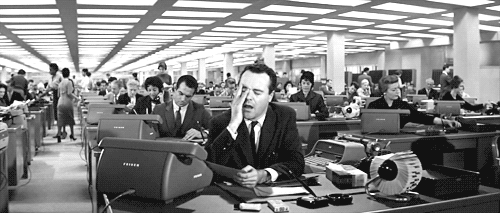New rules for small business

by Bruce Wahl
The world of business, especially small business, has always been in a state of flux. What works one year doesn’t work the following, and what is considered madness becomes genius in no time.
Today, we are experiencing one of the most momentous shifts in the small business ecosystem, and if you dig deep enough, you are bound to find the same core reason: new technologies.
For instance, you might not think that dwindling employee loyalties have anything to do with new tech, but it does. Thanks to new technologies, people are exposed to more information and options, and at the same time companies are less incentivized to keep employees. The widespread adoption of emerging technologies has radically changed the way we work and has redefined the rules of success for small businesses. Let’s examine.
Data-driven everything
There used to be a time when it was a matter of pride for small business owners to do everything “on a hunch” and to “listen to their gut”. There was something almost romantic to it, and while some small business owners still stick to this mirage from the good old days, the smart ones have long realized it worked back in the day simply because SMB owners had no choice.
Today, they do.
Now, any small business owner can easily get their hands on all kinds of business analytics tools that used to be reserved for the biggest players. Back in the “good old days,” only the biggest companies could afford business analytics teams and computers that took up entire rooms and building floors.
Thanks to the emergence of the SaaS business software model, small businesses can cheaply and easily obtain market research, marketing analytics, cost effectiveness studies and future projections that will help them make smarter decisions.
Of course, one does not simply jump into it; good data requires planning and research. But once a small business owner learns how to access insights and use them, their company has a serious advantage that can help them leave their competitors in the dust.
The new workplace
There is one scene that simply stays with you from Billy Wilder’s 1960 masterpiece The Apartment, an exaggerated look into what the workplace looked like in the late 1950s and 1960s.

The Apartment, 1960. Please note the master that is Jack Lemmon at work.
The kind of alienation and the focus on work that was so spectacularly lampooned in that movie remained with us for decades. But this is changing. Even The Office is over ten years old.
Business owners need to understand this if they want to stay competitive. They need to understand that flexible work hours and the option for remote work are among the most universally beloved employee perks in the world. While that might seem like something larger companies are able to do, small business owners need to embrace it as well.
It’s cost effective, keeps employees happy, and presents new advantages that weren’t possible before. When employees are putting in their day’s work around the globe, it providing the company with homegrown expertise, insight and perspective that would have been unattainable a decade ago simply because they didn’t have a headquarters in the area.
We’ve always assumed that as a company grows, there will be need for offices, negotiations, commercial real estate considerations and part of the reality of growing a business. But plenty are now starting off as location-independent small businesses and keeping it that way. When starting out, a desk and a laptop is enough.
Adaptability above everything
Many business owners set up a system to get things done, and then make minor tweaks along the way, hoping to create a well-oiled machine that churns out results. It makes sense.
Unfortunately the modern world of business simply does not allow for such an approach. Small business owners who operate like this face a new risk: because things change so rapidly, their business, if not the their entire industry, can pass them by. The fluidity of the world we live in precludes any success that does not involve a great deal of adaptability.
For example, take a look at what online stores are doing to retail in the United States. Hundreds of stores close down every year and tens of thousands of jobs are disappearing as if it were nothing. These are large retail chains, companies that have entire teams of analysts who are supposed to predict stuff like this. They have management consultants, they have insane marketing budgets. Still they’re dying out.
You never know where the next competitor will pop out and what kind of a new trend will ruin your hitherto perfectly viable business plan. You never know how a seemingly unrelated political decision half the globe away will change the availability of talent.
In a connected world, variables are ever-changing constants. Nothing can be taken for granted and no plan is guaranteed to work twelve or twenty-four months from now. The world of business has become brutally Darwinian thanks to new technologies and the world becoming smaller.
It is not the strongest that survive. It is the most adaptable.